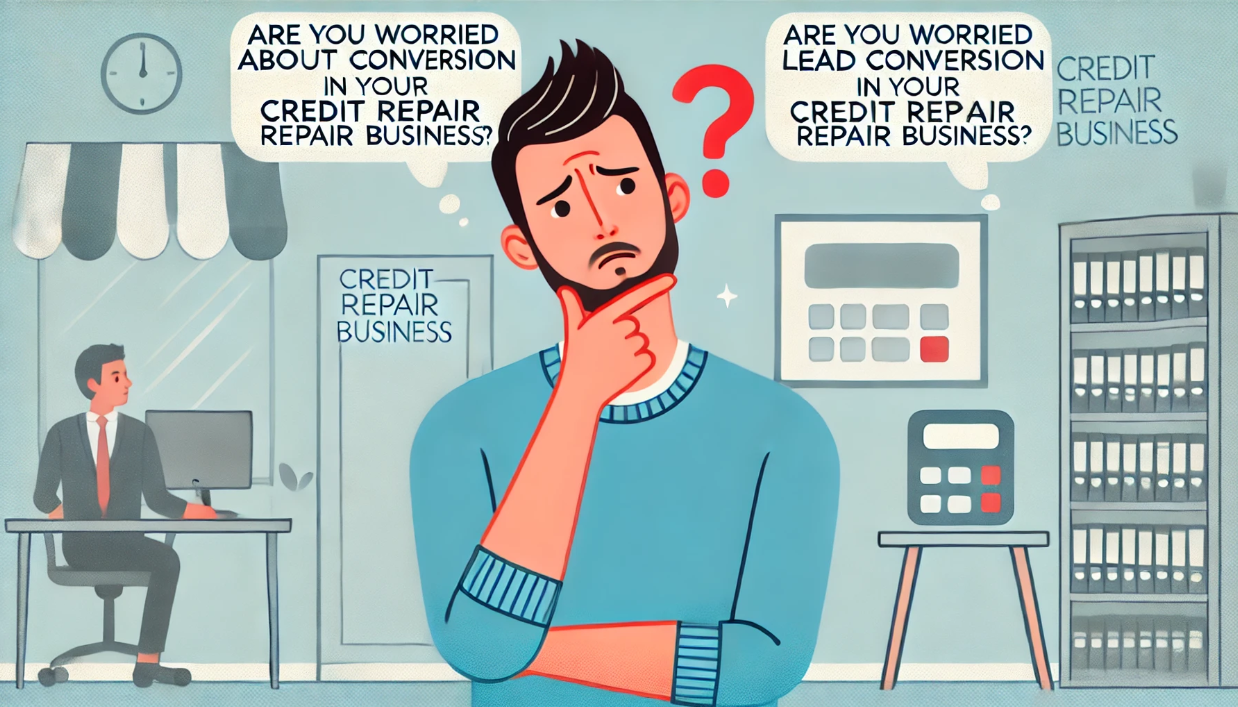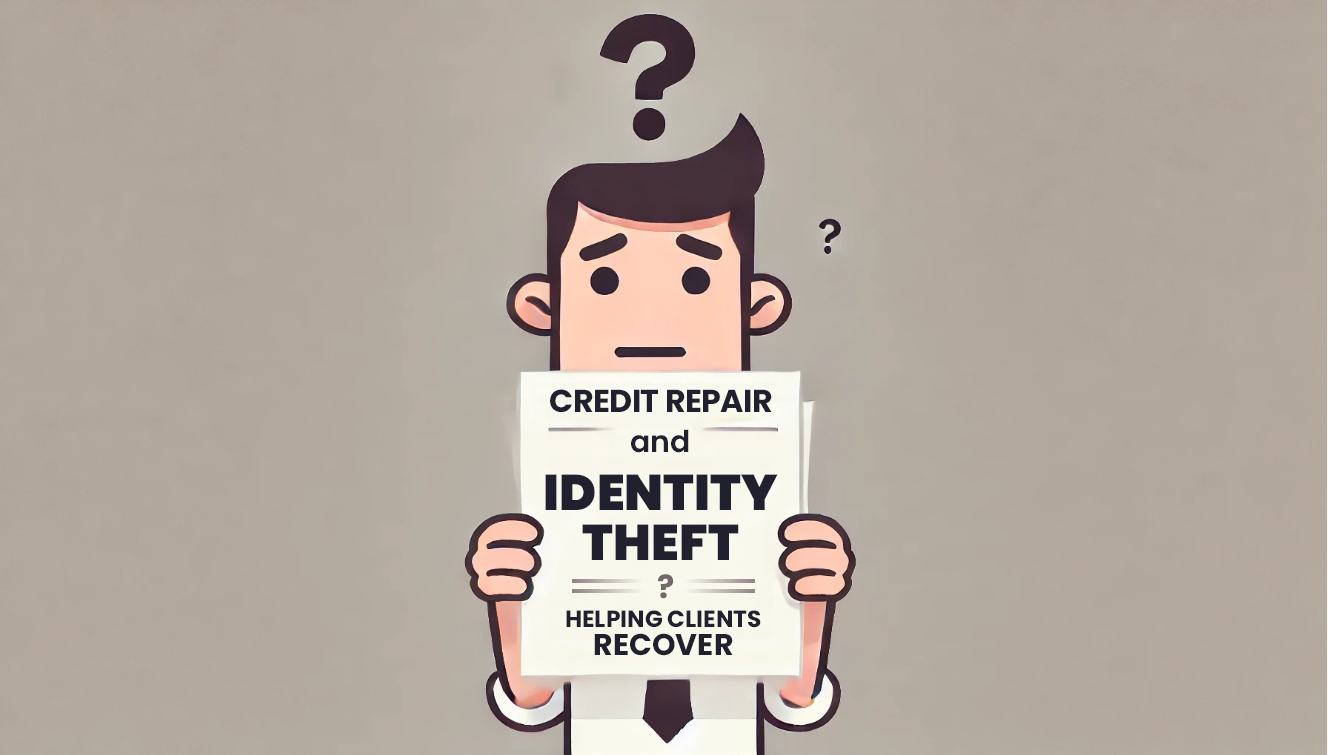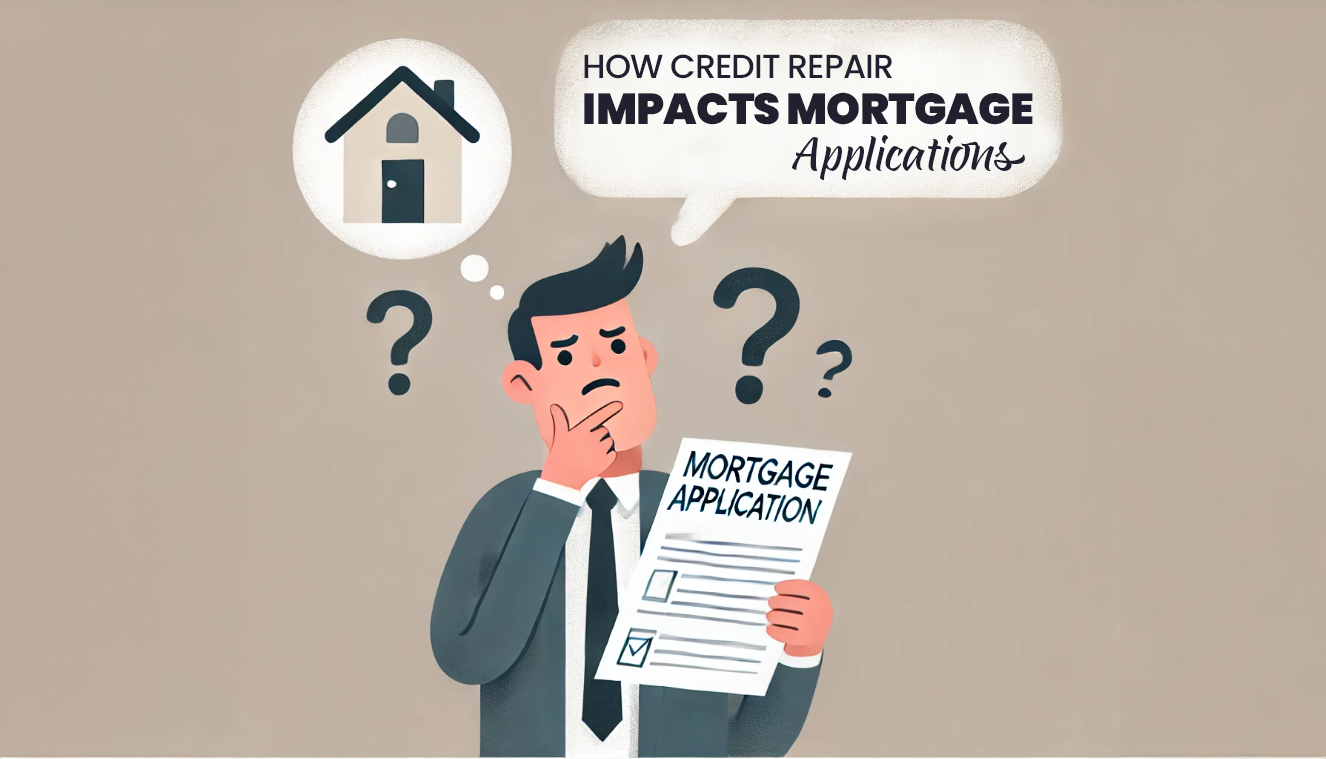Consumer Rights Under FCRA: Guide for Credit Repair Business
In the dynamic realm of credit reporting and repair, the Fair Credit Reporting Act (FCRA) emerges as a fundamental pillar safeguarding consumer-rights and ensuring the precision of data.
For businesses specializing in credit repair, an in-depth comprehension of the FCRA transcends mere compliance. It is integral to delivering unparalleled service. This guide aims to shed light on the critical elements of the FCRA. It equips your business with the knowledge to advocate robustly on behalf of your clients and refine the quality of your offerings.
The Fair Credit Reporting Act (FCRA) Explained
The Fair Credit Reporting Act (FCRA), enacted in 1970, is a cornerstone of consumer financial protection legislation in the United States. Its primary aim is to ensure the accuracy, fairness, and privacy of consumer information held by credit reporting agencies.
The FCRA sets the legal precedent for the collection, dissemination, and use of consumer credit information, offering a framework that balances consumer rights with the needs of creditors, lenders, and other financial institutions.
This federal law is critical in today’s credit-driven economy. A consumer’s credit report can influence everything from loan approval and interest rates to employment opportunities and housing options. By regulating how consumer credit information is handled, the FCRA plays a pivotal role. It ensures that credit reports are accurate reflections of a consumer’s financial behavior. This prevents potential misuse of this sensitive information.
Key Provisions for Consumers
The FCRA encompasses several key provisions aimed at protecting consumers, including:
- Access to Credit Reports: One of the fundamental rights under the FCRA is the ability of consumers to access their credit reports. The act entitles consumers to one free report from each of the three major credit bureaus — Equifax, Experian, and Transunion — every 12 months through annualcreditreport.com. This provision empowers consumers to review their credit history for accuracy and understand the information that potential creditors and employers see.
- Disputing Inaccuracies: The FCRA provides consumers with the right to dispute any incorrect or incomplete information in their credit reports. Upon receiving a dispute, credit reporting agencies are obligated to investigate and rectify any verified errors within 30 days. This process is crucial for maintaining the integrity of consumer credit reports and ensuring that consumers are not unfairly penalized for inaccuracies.
- Privacy Protections: The act places strict limits on who can access a consumer’s credit report and under what circumstances. Credit reports can only be provided for specific, permissible purposes, such as but not limited to credit transactions, employment considerations, insurance underwriting, or rental agreements, thereby safeguarding consumer privacy and preventing unauthorized access.
Implications for Credit Repair Businesses
For credit repair businesses, a thorough understanding of the FCRA is essential. This knowledge enables you to more effectively serve your clients. You can guide them through their rights under the FCRA, identify potential errors in credit reports, and initiate disputes with greater confidence and legal backing.
Understanding the FCRA equips credit repair businesses with the tools to navigate the complexities of the credit reporting landscape. By advocating for the correction of inaccuracies and ensuring compliance with privacy protections, you can help your clients improve their credit standings. This opens new opportunities for them in terms of loans, employment, and more.
Moreover, by educating clients about their rights under the FCRA, credit repair businesses foster a relationship of trust and transparency. This approach benefits clients and positions your business as a knowledgeable and reliable advocate in the credit repair industry.
What Credit Bureaus Can and Can’t Do Under the Law
The Fair Credit Reporting Act (FCRA) sets the stage for how credit bureaus operate, detailing the permissible scope of their activities and placing checks on their powers to protect consumer privacy and rights. Understanding these limitations and permissions is crucial for credit repair businesses to effectively serve and advocate for their clients.
Permissible Data Collection
Credit bureaus are authorized to collect a wide range of financial and personal information, which includes, but is not limited to:
- Bill Payment History: Reflects how promptly an individual pays their bills, providing insight into their financial responsibility.
- Loans and Current Debts: Information about past and current loans, including mortgages, credit cards, and other debts.
- Employment Information: May include job titles, salaries, and employment history.
- Residential Addresses: Current and past addresses can be collected to verify identity and residency.
- Bankruptcy Filings: Indicates if an individual has filed for bankruptcy, impacting their creditworthiness.
- Child Support Obligations: Outstanding child support can affect a person’s credit report.
- Arrest Records: In some cases, arrest records can be included in credit reports, although their impact on credit decisions varies.
Restrictions on Credit Report Access
The FCRA strictly regulates who can access credit reports and under which circumstances:
- Lenders: Can request credit reports for loan application considerations, such as mortgages or car loans.
- Insurance Companies: May review credit reports when individuals apply for policies, as credit history can influence insurance premiums.
- Government Agencies: Access is permitted in response to court orders, federal grand jury subpoenas, or for specific license applications.
- Employment: Employers can request a credit report for job applicants but only with the individual’s written consent.
Prescreening and Consumer Consent
While some entities can access parts of a credit report without direct permission for prescreening purposes, consumers have the right to opt out of such unsolicited offers. This process allows consumer control over who accesses their credit information for promotional reasons.
Mandatory Disclosures
Businesses pulling credit reports must always specify the reason, whether it’s related to a loan, employment background checks, or tenancy applications. This transparency requirement ensures consumers are aware of why their credit information is being accessed.
Consumer Rights Under the FCRA That Credit Repair Businesses Should Know About
Access to Credit Reports
Consumers are entitled to one free credit report annually from each of the three major credit bureaus via AnnualCreditReport.com, fostering transparency and allowing individuals to monitor their credit status individually with each of the credit bureaus.
Rights to Verify, Dispute, and Correct Information
- Employment Verification: When credit checks are conducted for employment, individuals have the right to verify the accuracy of their report.
- Notification of Adverse Actions: If information in their credit report is used against them in credit or other transactions, consumers must be notified.
- Dispute Resolution: Consumers can dispute inaccurate or incomplete information, and credit bureaus are required to investigate and correct any errors promptly.
- Outdated Information: Negative information must be removed after seven years, and certain bankruptcies after ten years, ensuring that credit reports reflect current financial behavior.
Legal Recourse
If a credit bureau fails to address disputes satisfactorily, consumers can file a complaint with the Consumer Financial Protection Bureau (CFPB), providing a channel for grievances and enforcement of rights.
For credit repair businesses, understanding these nuances of the FCRA is essential. It not only enables you to guide clients through the complex landscape of credit reporting and rights. It also equips you to challenge inaccuracies and advocate for fair treatment on behalf of those you serve. This knowledge is a powerful tool in the credit repair industry, empowering businesses to offer more comprehensive, effective services.
Empowering Your Business Through FCRA Knowledge
Enhancing Service Quality
Deep knowledge of the Fair Credit Reporting Act (FCRA) empowers credit repair businesses to operate with precision and effectiveness. This significantly benefits the service quality they offer to clients. This expertise is not just about understanding the law. It’s about leveraging it to ensure clients receive the best possible outcomes from their credit repair journey.
- Identifying and Disputing Inaccuracies: Mastery of the FCRA enables your team to swiftly identify inaccuracies in credit reports, understand the basis of disputes, and take appropriate action to correct them. Knowing exactly what constitutes an inaccuracy and how it can be legally disputed is fundamental to the success of these efforts.
- Understanding Credit Reporting Timelines: The FCRA outlines specific timelines for the reporting, disputing, and removal of information. A thorough understanding of these timelines helps credit repair professionals manage clients’ expectations and strategize their actions to improve credit scores more effectively.
- Navigating the Dispute Resolution Process: The dispute resolution process can be complex and time-consuming. However, with comprehensive FCRA knowledge, credit repair businesses can navigate this process more efficiently, leading to quicker resolutions and improvements in clients’ credit reports.
Building Trust with Clients
- Educating clients: The clients must be educated about their rights under the FCRA and the steps you’re taking to protect those rights. It does more than just inform them; it builds a foundation of trust and transparency between your business and your clients.
- Advocating for Consumer Rights: Positioning your business as a knowledgeable advocate for consumer rights enhances client satisfaction. It reassures clients that you’re not just managing their cases but are actively fighting for their best interests under the law.
Navigating Disputes and Compliance
Effective dispute handling and strict compliance with FCRA guidelines are non-negotiable aspects of running a credit repair business.
- Effective Dispute Handling: Utilizing a combination of manual expertise and Credit repair business software can streamline the dispute process. Software tools can help organize and track disputes, automate communications, and ensure all claims are filed timely and accurately.
- Ensuring Compliance: Adherence to FCRA guidelines is crucial. This includes only accessing credit reports for permissible purposes. It also ensures that all information provided to credit bureaus during disputes is accurate. Compliance not only avoids legal pitfalls but also maintains the integrity and reputation of your business.
Leveraging Tools and Resources
Credit Repair Software
Investing in specialized Credit repair business software can significantly enhance your business’s efficiency and efficacy. These tools can automate many of the tedious tasks associated with credit repair, such as:
- Dispute Letter Generation: Automatically generate personalized dispute letters based on detected inaccuracies, saving time and reducing human error.
- Client Management: Manage client profiles, track dispute statuses, and keep detailed records of all actions taken on behalf of each client.
- Reporting and Analytics: Use built-in analytics to track progress, identify trends, and make informed decisions about strategy adjustments.
Credit Repair Education
Continuing credit repair business education and FCRA compliance is essential for staying ahead in a competitive and ever-changing industry. This can include:
- Professional Development: Encourage staff to participate in webinars, workshops, and certification programs focused on credit repair laws and best practices.
- Client Education: Offer educational resources to clients, such as guides, blog posts, and webinars, to help them understand their rights and the credit repair process. Educated clients are more engaged and often achieve better outcomes.
Final Thoughts
In conclusion, the Fair Credit Reporting Act (FCRA) serves as a critical framework for the operations of credit repair businesses, offering a comprehensive set of rules and protections designed to ensure the accuracy, fairness, and privacy of consumer credit information. By deeply understanding and adhering to the FCRA, credit repair businesses not only safeguard their compliance but also significantly enhance their service quality.
This knowledge enables these businesses to effectively identify inaccuracies and navigate dispute resolutions. They can also advocate for consumer rights, thereby fostering trust and achieving better outcomes for their clients. The FCRA’s provisions empower consumers with rights. When fully leveraged by knowledgeable credit repair professionals, these rights can lead to profound improvements in their credit reports and overall financial well-being.
Furthermore, the integration of credit repair busniess software and continuous education in FCRA compliance and credit repair best practices underscore the importance of embracing technology and learning for the advancement of the credit repair industry. These tools and resources not only streamline operations but also elevate the standard of service provided to clients.
As credit repair businesses navigate the complexities of the credit reporting landscape, their commitment is clear. Understanding and applying the principles of the FCRA remains paramount. This dedication ensures the success and growth of their business. It also champions the financial empowerment of consumers, reinforcing the significance of credit repair services in today’s economy.
References:
Fair Credit Reporting Act (FCRA)
Credit Bureaus to Report within 30-days
Consumer Financial Protection Bureau (CFPB)
Comments are closed.





